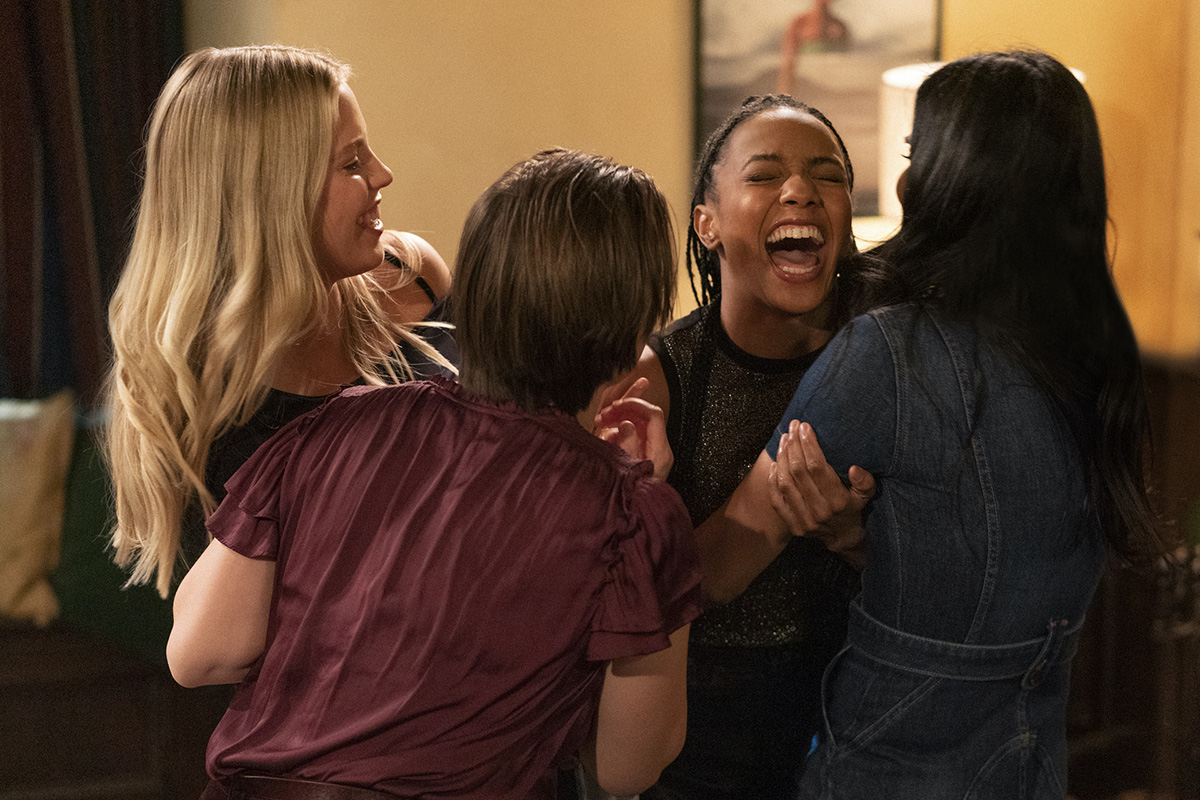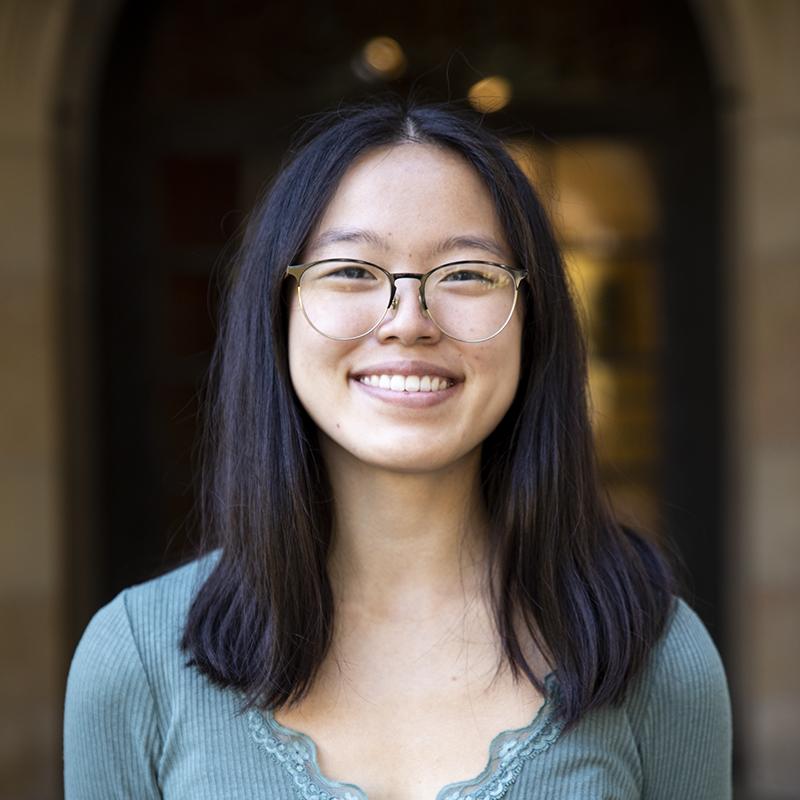Q&A: Cast of ‘The Sex Lives of College Girls’ discusses erasing stigma around sex

(From left to right) Reneé Rapp, Pauline Chalamet, Alyah Chanelle Scott and Amrit Kaur play Leighton Murray, Kimberly Finkle, Whitney Chase and Bela Malhotra in “The Sex Lives of College Girls.” (Courtesy of HBO Max)

By Vivian Xu
Dec. 13, 2021 1:29 p.m.
Women are on top in “The Sex Lives of College Girls.”
The final two episodes of the HBO Max series premiered Dec. 9, concluding the first season of the show led by co-creator Mindy Kaling. Set in a prestigious New England university, the series follows four freshman roommates – naively sheltered Kimberly (Pauline Chalamet), brazen extrovert Bela (Amrit Kaur), preppy, cosmopolitan Leighton (Reneé Rapp) and star athlete Whitney (Alyah Chanelle Scott) – as they navigate sex and romance in college.
In a virtual roundtable organized by The Lede Company, Chalamet, Kaur, Rapp and Scott spoke with the Daily Bruin’s Vivian Xu and other college journalists about destigmatizing women having sex, leveling sexual expectations, and portraying the aftermath of sexual assault.
This interview has been edited for length and clarity.
Daily Bruin: In the past few decades, discussing sex – specifically women having sex – has become a bit less taboo, but there certainly is still stigma associated with the topic. With the show’s portrayal of a diverse array of female sexual experiences, how do you think it can change the current status quo?
Reneé Rapp: It starts a conversation, whether that be a positive conversation or not. All of these four people, we all have sex, but also there are so many different conversations around sex and around identities and how those coincide.
Alyah Chanelle Scott: (The show can also) demystify the idea of women having sex and young women having sex, not oversexualizing us just because we’re women having sex. We’re people. For myself, I grew up in the South, and sex was not talked about at all. I internally had so much trauma and shame and guilt and all these feelings that (were) put onto me that I learned inherently based on the space I grew up in. Removing that for me as part of the process of being cast in the show, I wish I had been able to see something like this growing up to help me deal with that. Take the shame out of it, and let it be sex.
[Related: Q&A: Director Paul Thomas Anderson reflects on real-life inspiration for ‘Licorice Pizza’]
Massachusetts Daily Collegian: In the show, there’s this trope of the girls naively romanticizing sex. Later they realize it’s not all that they had expected. Why do you think it’s so important to show this disconnect between expectations and reality when it comes to sexual experiences?
ACS: Sadly, I grew up with little to no expectation of what sex was. You have all these ideas that are fed to you from either porn or from your friends who are maybe not being honest and truthful about how sex actually goes. In your mind, you tell yourself it will be this one thing and it will feel like this one thing, but oftentimes it’s not. I like seeing that on the show, and I like seeing how it plays out for each character and how it falls apart, getting into these messy relationships.
Pauline Chalamet: We do live in a patriarchal society. What that means is there are expectations that both sides have. Reassessing your expectations, it’s a two-person game. I’m hoping that in season two, we’re also able to explore a little bit more from the male side (of the) evaluation of expectations and on the female side, explore what the expectations are. (Then), seeing when (two expectations) become compatible, (asking) why does it then work and the communication that ensues from that.
[Related: Q&A: Halle Berry discusses artistic choices, acting in directorial debut ‘Bruised’]
The California Aggie: A show on college women’s sexual experiences unfortunately wouldn’t be completely accurate without the depiction of assault and harassment that Bela experiences. What was it like filming those scenes and why is it important to include them in a show like this? What do you hope people can take away from watching the events and how they were handled?
Amrit Kaur: What’s beautiful in Bela’s journey in this situation is what she’s (experiencing) is in the gray area. That’s what the writers really wanted to explore: the gray area. That can often be challenging because there’s so many triggers and history and trauma related to that. I thought it was sensitive and very brave of the writers to explore the gray area. We can’t really qualify anybody’s experience.
PC: I actually really like how (the assault) is handled. Title IX, bringing charges against someone, universities have their own rules, states have their own rules, going to the police, the person who you’re accusing. Are they white? Are they Black? Are they a person of color? There’s so many nuances in the aftermath of sexual assault. It’s an amazing storyline that this show will hopefully continue to explore because it shows the nuance when you’re talking about such important matters that affect so many women on college campuses.


